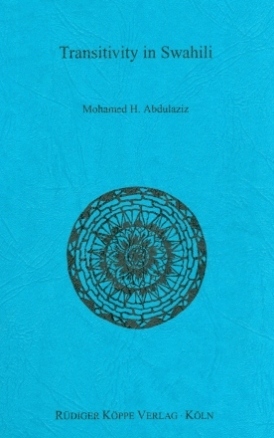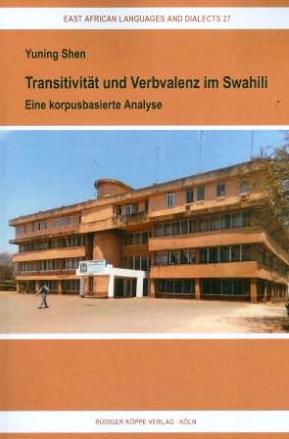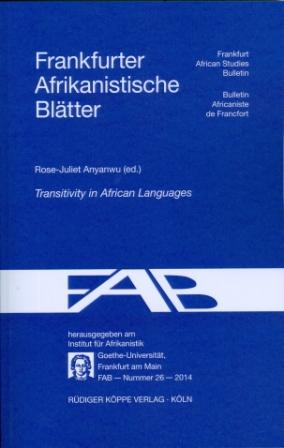


Transitivity in Swahili
Author: Mohamed H. Abdulaziz. Series edited by: Bernd Heine, Wilhelm J.G. Möhlig †.
Series: EALD East African Languages and Dialects Volume 5
1996292 pp.
21 diagrams, 2 tables, subject index
Text language(s): English
Format: 160 x 240 mm
580 g
Paperback
€ 59.80
Buy 'Transitivity in Swahili' as a downloadable PDF document directly from our online shop »
Order 'Transitivity in Swahili' as print edition »
The present study analyses the possible transitivity patterns in Swahili syntax on the basis of the systematic functional grammar. Using Swahili for illustration purposes, the author works out a new theory for syntax analysis in African languages, referring to Michael Halliday’s (1925–2018) transitivity theory for the English syntax. The concept of transitivity is not understood as part of the vocabulary but rather as part of the sentence. The author treats transitivity as a syntactic expression of processes in the external world of events as well as the internal world of human consciousness.
The transivitiy patterns of the Swahili sentence are discussed from the point of view of four different process types (material, mental, relational, verbal) which have proved to be essential for a suitable description of Swahili. These types are of material, mental, ralational and verbal nature.
The present thesis is an updated, totally revised and extended version of the author’s dissertation accepted at the University of London.
Under these links you will find further analyses of transitivity and verb valency in Swahili and other African languages:
Accompanying material:
- Locative and Non-locative in Kiswahili Bantu
(ISBN 978-3-89645-713-4 ) - Objects and Complements in Kiswahili Clauses
(ISBN 978-3-89645-560-4 ) - Transitivity in African Languages
(ISBN 978-3-89645-726-4 ) - Transitivität und Verbvalenz im Swahili
(ISBN 978-3-89645-712-7 )
Reviews
[...] his work is well-illustrated and the semantic analysis of the examples is often very refined. [...] the work of Abdulaziz contributes in a major way to the syntax of Swahili, which until now has been the subject of only very few studies. In fact, Abdulaziz ends his book with a discussion of some other works on the issue of transitivity in Swahili.
[...] it throws new light on the methodology of the systemic grammar. To conclude we could state that anyone who wishes to study the nominal functions and predicative relations in Swahili, will henceforth have to take this amply documented source into account.
Pascale Hadermann in Afrikanistische Arbeitspapiere, 48/1996, 118
| « back | Print version | [top] |
 Books
Books Audio
Audio Biographies
Biographies Series
Series Festschrifts
Festschrifts Journals
Journals